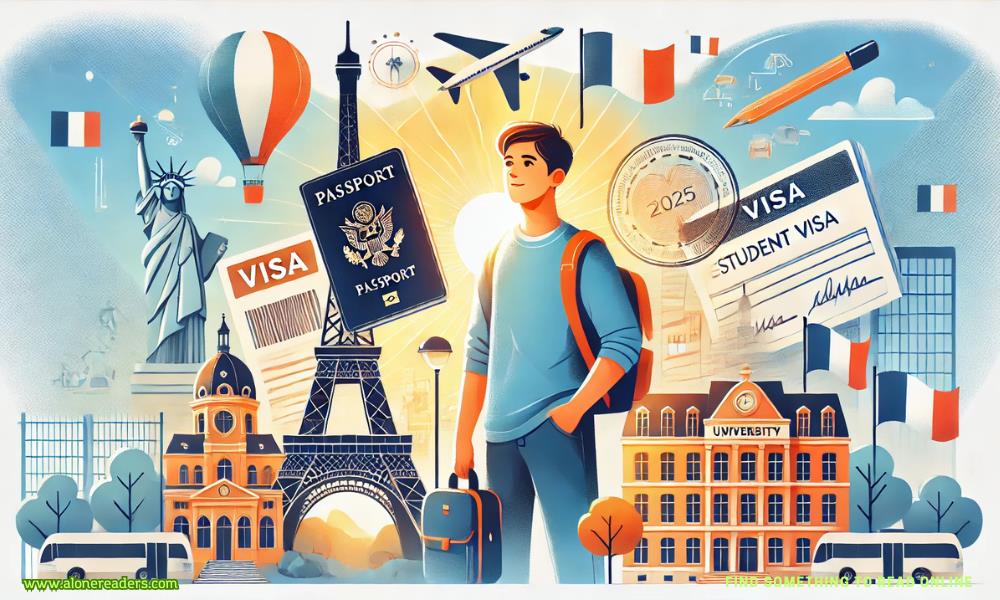
Embarking on an academic journey in France is an exciting prospect for many international students. Known for its prestigious institutions, rich culture, and vibrant lifestyle, France offers an unparalleled educational experience. To make this dream a reality, obtaining a France Student Visa is a crucial step. This comprehensive guide will walk you through everything you need to know about applying for a France Student Visa in 2025, including requirements, the application process, fees, duration, and important tips to ensure a smooth application.
A France Student Visa, officially known as the Long-Stay Student Visa (VLS-TS), allows non-European Union (EU) students to reside in France for the duration of their academic program, typically ranging from six months to a year or more. This visa not only permits you to study but also allows limited work rights, providing a comprehensive experience of living and studying in France.
To be eligible for a France Student Visa in 2025, applicants must meet the following criteria:
Acceptance into a Recognized Institution: You must have been accepted into a French higher education institution, such as a university, grande école, or other accredited programs.
Proof of Financial Means: Demonstrate sufficient financial resources to cover tuition fees, living expenses, and other costs. As of 2025, the required amount is approximately €615 per month.
Health Insurance: Provide proof of comprehensive health insurance coverage valid in France for the entire duration of your stay.
Accommodation Proof: Show evidence of accommodation arrangements in France, whether on-campus housing, private rentals, or a signed lease agreement.
Academic Qualifications: Hold the necessary academic qualifications required by the educational institution you plan to attend.
Language Proficiency: Depending on the program, you may need to demonstrate proficiency in French or English through standardized tests.
Clean Criminal Record: Provide a police clearance certificate to prove you have no criminal record.
France offers several types of student visas tailored to different academic needs:
Short-Stay Student Visa (Visa de Court Séjour - VCS): For courses or programs lasting less than three months.
Long-Stay Student Visa (Visa de Long Séjour - VLS-TS): For programs exceeding three months. This is the most common visa for degree programs.
Researcher Visa: For individuals engaging in research or academic projects.
Secondary Education Visa: For students enrolling in secondary education institutions.
Applying for a France Student Visa involves several steps. Here's a detailed breakdown to guide you through the process:
Step 1: Acceptance into a French Educational Institution
Before applying for a visa, secure admission to a recognized French educational institution. You will need an official acceptance letter or enrollment certificate (certificat d'inscription) as part of your visa application.
Step 2: Gather Required Documents
Prepare the necessary documents to support your visa application. These typically include:
Step 3: Complete the Visa Application Form
Fill out the Long-Stay Visa Application Form accurately. You can complete this online through the France-Visas portal. Ensure all information matches your supporting documents to avoid delays.
Step 4: Schedule and Attend the Visa Interview
Book an appointment with the nearest French consulate or visa application center. During the interview, you will:
Step 5: Pay the Visa Fees
As of 2025, the Long-Stay Student Visa fee is approximately €99. Payment methods vary by consulate but typically include credit/debit cards and bank transfers. Check the official fee schedule for the most accurate information.
Step 6: Await Visa Decision
After submitting your application, processing times can vary. Generally, it takes between 2 to 4 weeks, but it’s advisable to apply 3 months in advance to accommodate any delays.
Visa Fees
Note: Fees are subject to change. Always refer to the official France-Visas website for the latest fee structure.
Duration
Upon arriving in France with a Long-Stay Student Visa, you must:
Conclusion
Applying for a France Student Visa in 2025 involves careful preparation and adherence to the outlined requirements and procedures. By understanding the eligibility criteria, gathering the necessary documentation, and following the application steps meticulously, you can enhance your chances of securing a visa successfully. Remember to start the process early, stay informed about any updates, and utilize the available resources to navigate the application smoothly. Studying in France can be a transformative experience, offering not only academic excellence but also cultural enrichment and personal growth.